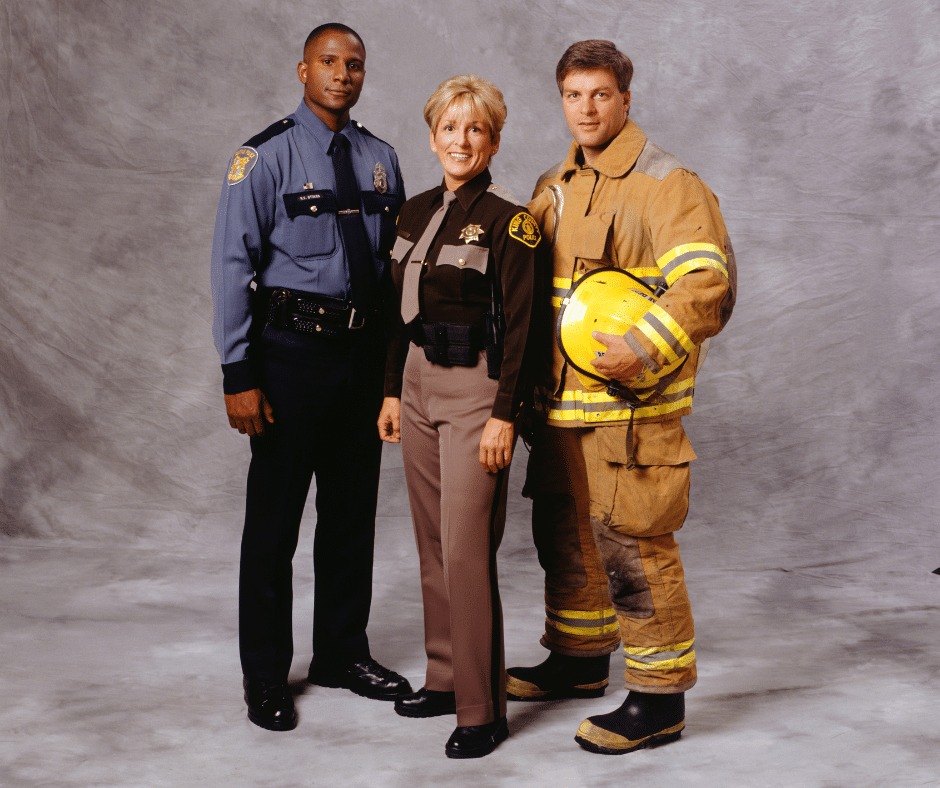Strength and Vitality for First Responders
Testosterone Therapy: Strength and Vitality for First Responders
First responders are the heartbeat of any community. From firefighters and police officers to paramedics and emergency medical technicians, these individuals dedicate their lives to protecting others. However, the demands of the job—long hours, high stress, and physical strain—can take a toll over time. One hidden challenge many first responders face is the decline in testosterone levels. This natural process, often exacerbated by the physical and emotional stress of the profession, can lead to fatigue, reduced strength, and even emotional instability.
Low testosterone isn’t just about feeling tired or off your game; it can affect every aspect of life, from job performance to personal relationships. Fortunately, Testosterone Replacement Therapy (TRT) offers a way to restore vitality and confidence, helping first responders continue to perform at their best both on and off the job.

The Demands of a First Responder's Life
Being a first responder means embracing a life of unpredictability. Shifts often extend beyond standard hours, and recovery time between physically and emotionally intense incidents can be minimal. Sleep deprivation is common, as is the pressure to make quick, life-saving decisions under extreme circumstances. Over time, these factors can lead to chronic stress, which disrupts the body’s hormonal balance.
One significant consequence of prolonged stress is the accelerated decline of testosterone levels. Testosterone, a hormone essential for maintaining energy, muscle mass, mood stability, and mental clarity, naturally decreases with age. For first responders, this decline can occur earlier or more rapidly due to the unique challenges they face.
The Symptoms of Low Testosterone
For many first responders, the symptoms of low testosterone may creep in gradually, making them easy to overlook or attribute to other factors like aging or job-related stress. However, understanding these signs is critical to addressing the root cause and improving overall well-being.
Common symptoms include:
- Persistent fatigue, even after a full night’s rest.
- Decreased physical performance and difficulty maintaining muscle mass.
- Emotional changes such as irritability, anxiety, or depression.
- Reduced mental sharpness, often referred to as “brain fog.”
- Lower libido and challenges with intimacy.
- Unexplained weight gain, particularly around the midsection.
- Poor sleep quality, leading to further exhaustion.
While these symptoms can feel isolating, they are common and treatable. Recognizing them is the first step toward reclaiming vitality.
How Testosterone Therapy Can Help First Responders
Testosterone Replacement Therapy is more than just a medical treatment—it’s a way to restore balance, energy, and strength. For first responders, TRT offers the chance to address the physical and emotional challenges that come with low testosterone, ensuring they can continue to meet the demands of their roles.
When testosterone levels are restored, the benefits extend across many areas of life. Energy levels improve, making long shifts and physically demanding tasks more manageable. Mood stabilizes, reducing irritability and enhancing emotional resilience in stressful situations. Strength and endurance return, enabling better performance on the job. Additionally, improved mental clarity helps with quick decision-making under pressure, a critical skill for first responders.
Perhaps most importantly, TRT can help restore a sense of confidence and well-being, both professionally and personally.
The Science Behind Testosterone Therapy
Testosterone Replacement Therapy works by replenishing the body’s natural levels of testosterone. At its core, the treatment involves introducing bio-identical hormones that mimic the testosterone your body naturally produces. This ensures safety and minimizes side effects while delivering maximum effectiveness.
The process typically begins with a consultation, during which symptoms are discussed, and testosterone levels are tested through a simple blood draw. Once low levels are confirmed, a personalized treatment plan is created. This plan might include weekly or bi-weekly injections, topical gels, or other forms of therapy depending on individual needs.
Regular monitoring ensures that the therapy remains effective and adjustments are made as necessary. Over time, most patients report significant improvements in energy, strength, and overall quality of life.
Why TRT Matters for First Responders
The benefits of TRT go beyond alleviating symptoms. For first responders, this therapy can mean the difference between just getting through the day and thriving in their demanding roles. With restored energy and resilience, first responders can return to their jobs with renewed confidence, knowing they are equipped to handle whatever comes their way.
TRT also offers significant benefits in personal life. Improved mood and intimacy can strengthen relationships, while better physical health can lead to a more active and fulfilling lifestyle outside of work. For first responders, who often give so much of themselves to others, this renewed vitality can feel like reclaiming a part of themselves that they thought was lost.
Overcoming Stigma and Taking the First Step

Despite the clear benefits, some first responders may hesitate to seek treatment due to stigma or misconceptions about testosterone therapy. It’s important to understand that Low T is a medical condition, not a personal failing, and addressing it is a proactive step toward better health.
Testosterone therapy is not about “cheating” or enhancing performance artificially—it’s about restoring natural levels of a vital hormone and improving quality of life. Seeking help is a sign of strength, demonstrating a commitment to personal well-being and the ability to continue serving others at the highest level.
Need a check-up or second opinion on your health?
Speak to a Licensed Men's Health Expert.
A Tailored Approach for First Responders
At Tactus Health, we understand the unique challenges faced by first responders. That’s why our approach to testosterone therapy is designed to fit seamlessly into your busy life. We offer both in-person and virtual consultations to make treatment accessible, no matter your schedule or location. Our personalized plans ensure that every patient receives care tailored to their needs, with ongoing support and monitoring to maximize results.
Additionally, we’re proud to offer a 20% discount for first responders—a small way to give back to those who give so much to their communities.
Conclusion: Reclaim Your Vitality
Low testosterone doesn’t have to hold you back. With Testosterone Replacement Therapy, first responders can regain the energy, focus, and strength they need to excel both on and off the job. This treatment isn’t just about feeling better—it’s about living better, ensuring you have the vitality to continue serving others while also prioritizing your own health and happiness.
If you’re ready to take the first step toward reclaiming your vitality, schedule a consultation today. Whether in-person or online, Tactus Health is here to help you feel like yourself again.
Stay Informed: Subscribe to Our Newsletter
What Next?
You may also like…
- What Happens When You Stop TRT?
- Finding the Right Testosterone Therapy Clinic
- Does Insurance Cover Testosterone Therapy?
- Low Testosterone and Anxiety
- 6 Benefits of HGH Therapy
- Strength and Vitality for First Responders
- Clomid Therapy for Male Fertility
- Improving Type 2 Diabetes with HRT
- Understanding High Blood Pressure
- DNA Testing for Weight Loss
Thanks for Reading: Share with Your Friends!
NEW PATIENT SPECIAL
$9/UNIT BOTOX
*On first 20 units of Botox
Contact Us
- 1400 Buford Hwy NE
- Sugar Hill, GA 30518
- Suite K 2
- (678) 892-9230
